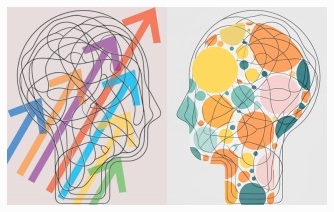 A disagreement stays harmless until you make it personal. Attack someone’s character, dismiss their opinions, or ignore their emotions, and it stops being a discussion. It becomes a battle.
A disagreement stays harmless until you make it personal. Attack someone’s character, dismiss their opinions, or ignore their emotions, and it stops being a discussion. It becomes a battle.
When emotions flare, logic vanishes. You’re no longer debating ideas—you’re defending your identity. It’s not about the issue anymore. It’s about validation. It’s us versus them. You fight to prove your point while tuning theirs out. If you’re already stressed or dragging old grudges, expect a full-blown meltdown. Old conflicts have a nasty habit of crashing new arguments.
To stop a disagreement from spiraling, resist making it personal. Even if their perspective sounds absurd, make a real effort—however brief—to understand it. If you value the relationship more than the argument, find common ground.
And don’t storm off. A dramatic exit feels good in the moment but sends one loud message: I don’t respect you enough to finish this. If you need space, say it straight. Try, “This is getting heated, and I’m not sure I’m communicating effectively. I need a break to collect my thoughts. Can we take five minutes?” Address it. Be clear. Pretend you’re listening—even if you aren’t.
 November 20 is
November 20 is .jpg)
 Life is not a cradle of comfort but a crucible of experience. To be conscious is to be vulnerable—to injury, to loss, to the slow erosion of certainty. Suffering is not a glitch in the system; it is the system. And yet, the modern mind, coddled by convenience and narcotized by distraction, recoils from this fact as if it were an indecency rather than a reality.
Life is not a cradle of comfort but a crucible of experience. To be conscious is to be vulnerable—to injury, to loss, to the slow erosion of certainty. Suffering is not a glitch in the system; it is the system. And yet, the modern mind, coddled by convenience and narcotized by distraction, recoils from this fact as if it were an indecency rather than a reality. We tend to see
We tend to see  A thing can feel bad and be right.
A thing can feel bad and be right. Organizations often face a moral dilemma when confronting high-performing individuals—those rainmakers whose charisma and drive yield tangible results (Jack Welch’s
Organizations often face a moral dilemma when confronting high-performing individuals—those rainmakers whose charisma and drive yield tangible results (Jack Welch’s .jpg)
 Watch out for anyone who demands you jump through hoops just to be treated with basic decency.
Watch out for anyone who demands you jump through hoops just to be treated with basic decency. The tendency to divide humanity into heroes and villains, saints and devils, is
The tendency to divide humanity into heroes and villains, saints and devils, is  “Don’t fight the wave,” they say, is the surfer’s first lesson.
“Don’t fight the wave,” they say, is the surfer’s first lesson.